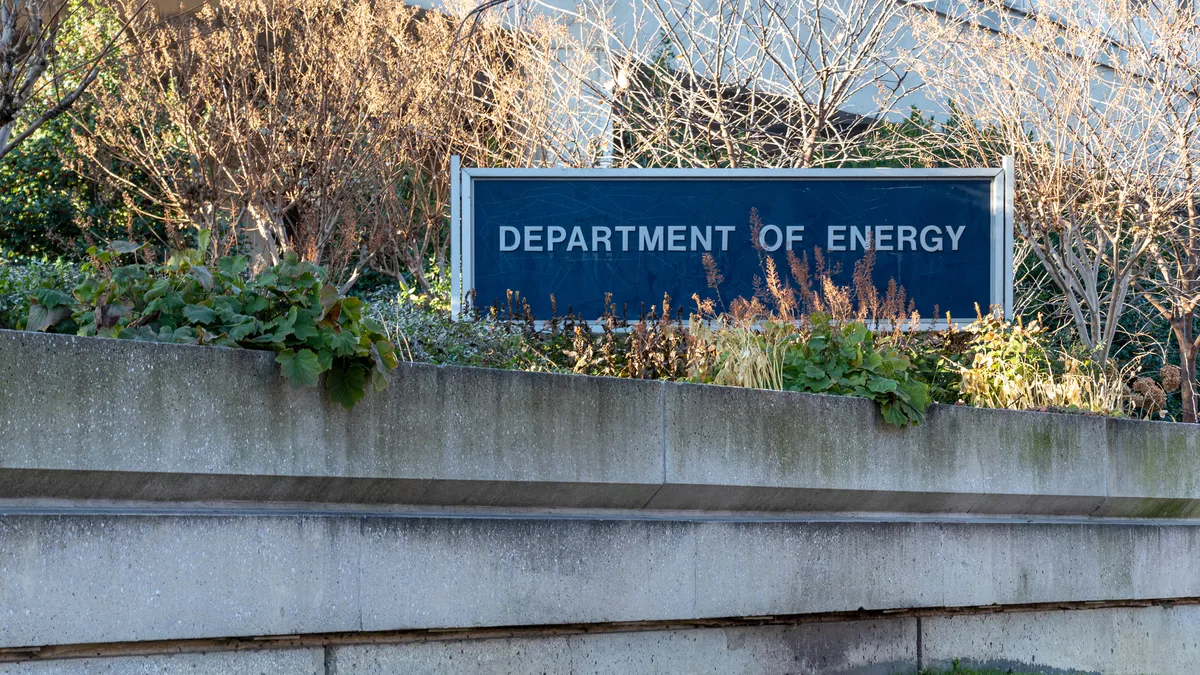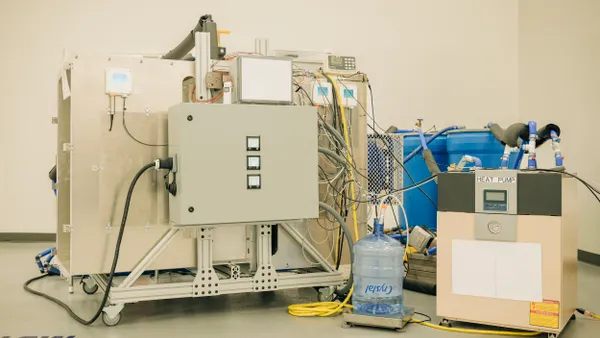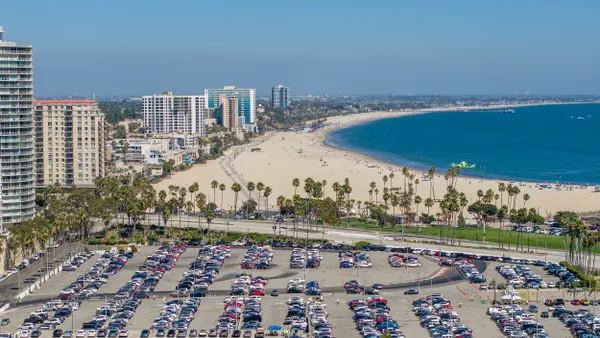Dive Brief:
- The U.S. Department of Energy is providing up to $40 million in grants to states to grow and upskill the workforce that will conduct energy efficiency audits on commercial and residential buildings, it said in a Dec. 20 news release.
- The Energy Auditor Training grant program’s short-term goals are to offer energy auditor training certifications, give states a standardized framing for the education and training energy auditors require, enlarge the pipeline of diverse talent for such positions and connect trainees to career opportunities, according to an EAT program fact sheet.
- The program, which is now accepting applications, aims to increase the qualified green building workforce by ensuring that building performance professionals, energy auditors and other energy efficiency workers are poised for an “upgrade to a more sustainable future,” the department said.
Dive Insight:
Clean energy technologies like heat pumps, solar photovoltaic and battery storage systems could generate more than 600,000 jobs across the U.S. West, Northeast, Midwest, South and Southeast regions, or up to 4.7 jobs for every commercial building, according to a recent study by Schneider Electric and Boston University.
The EAT grant program is part of a concerted effort by the Biden administration to invest in a clean energy workforce that will implement energy efficiency programs aimed at assisting states, local governments, businesses and homeowners in saving costs and combating climate change. It is designed to support the implementation of national energy efficiency improvements outlined in the bipartisan infrastructure law and the Inflation Reduction Act, the department said.
In the long term, the program aims to deepen the DOE’s partnerships with states, agencies and organizations to build capacity for clean energy building audits.
Applicants will need to submit a community benefits plan detailing how their proposal will support local communities and local labor; invest in workforce development; advance diversity, equity, inclusion and accessibility; and aid economic and environmental justice initiatives, the DOE said. Applicants must submit concept papers by March 28, 2024, and applications are due June 28, 2024.
The DOE’s Office of State and Community Energy Programs oversees these efforts, aligning with President Biden’s Justice40 initiative to ensure that 40% of clean energy investment benefits percolate to energy-burdened and historically underserved communities.
“It is vital that we build a strong clean energy workforce with high quality jobs to ensure we can deploy investments in communities across the country,” U.S. Secretary of Energy Jennifer Granholm said in the release. By equipping America’s workers with additional skills, the grants will allow workers from a broad range of industries to safely and reliably conduct energy audits, she added.
In November, the DOE announced $40.8 million in grants to expand workforce training opportunities to prepare participants for careers as building energy managers; insulators; heating, air conditioning and refrigeration professionals; and advanced technicians in clean energy sectors such as battery storage and solar manufacturing.












